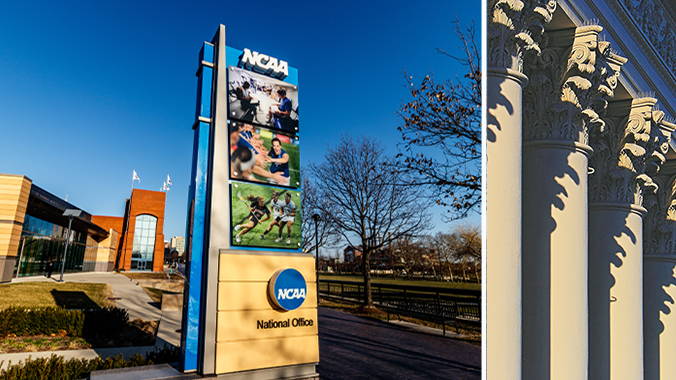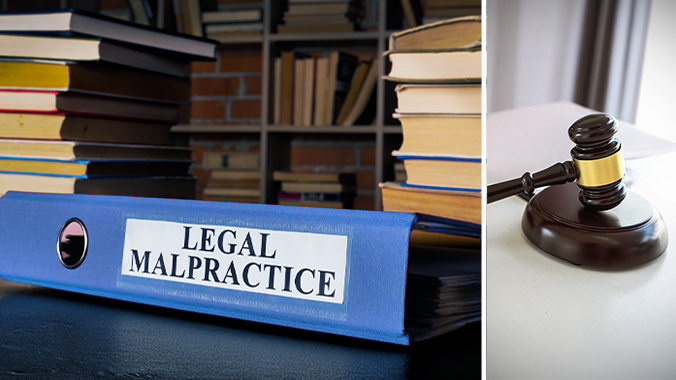Provisions and Risks in Drafting Commercial Leases: Key legal protections tenants and landlords must address



On-Demand: May 14, 2024
4 hour CLE
Tuition: $295.00
Co-Sponsored by myLawCLE
Get this course, plus over 1,000+ of live webinars.
Learn More
Training 5 or more people?
Sign-up for a law firm subscription plan and each attorney in the firm receives free access to all CLE Programs
Program Summary
Session I - A Sampling of Key Provisions in Lease Drafting - Dov Treiman
This session will be an overview of some of the key provisions in drafting a commercial lease. While the presentation has no intent to be encyclopedic in content, it presents a survey both of the unexpected precautions a proper drafter must take and those that he has derived in response to recent historical events. These include permitted and prohibited uses, rent relief, force majeure (including pandemic events), assignment and subletting, tricks and traps in enforcing the lease under threat of eviction, and allocation of responsibilities between landlords and tenants.
Key topics to be discussed:
- Permitted Use Provisions: Understanding and defining the allowed uses for the premises
- Rent Abatement and Termination: Addressing circumstances where rent relief or termination may be warranted
- Force Majeure Provisions: Considering events beyond the parties' control that may affect lease obligations
- Assignment and Subletting Terms: Outlining conditions for transferring lease rights to third parties
- Default and Remedy Provisions: Establishing consequences and remedies for breaches of lease terms
- Tenant and Landlord Obligations: Defining responsibilities regarding operating expenses, maintenance, repairs, services, access, and indemnity
Session II - Risk Management in Commercial Leasing: Strategies for Precise Drafting and Legal Protection - James Hochman
Commercial leases vary based on property type, requiring tailored agreements to reflect the unique needs of office, retail, or industrial spaces. Proper drafting is crucial, as generic templates fail to address specific circumstances and may lead to disputes. Careless drafting or oversight can result in costly legal battles, emphasizing the importance of meticulous drafting and legal foresight to mitigate risks and protect the interests of landlords and tenants alike.
Key topics to be discussed:
- All Commercial Leases are Not Alike: What is different among office, retail, and industrial leases, and why you need to adjust for the subject property
- Importance of Proper Drafting: One size does not fit all
- Tales from the front: What happens when there is careless drafting or the lawyers have not anticipated what can go wrong
Session III - Overview of Office and Retail Leases - David Gunning
In this session, the four major topics of Office Leases and Retail Leases will be covered, offering a dual perspective encompassing both landlords and tenants. From the intricate negotiations of lease terms to the dynamics of property management, the nuances of lease agreements, examining the rights, responsibilities, and potential pitfalls for both parties involved will be discussed. Through this multifaceted analysis, David Gunning aims to provide a holistic understanding of the intricate relationship between landlords and tenants in the context of commercial real estate, offering invaluable insights for professionals navigating these dynamic markets.
Key topics to be discussed:
- Maintenance and Repair v. Replacement
- Assignment and Subletting
- Alterations
- Environmental
This course is co-sponsored with myLawCLE.
![]() Closed-captioning available
Closed-captioning available
Speakers
 Dov Treiman | Adam Leitman Bailey, P.C.
Dov Treiman | Adam Leitman Bailey, P.C.
Mr. Treiman has been a partner at Adam Leitman Bailey P.C. since 2006 and chairs the Landlord-Tenant Civil Litigation Practice.
Mr. Treiman was involved in private practice for fifteen years before devoting his principal time to the collecting, editing, writing, and publishing of scholarly research materials in landlord-tenant law. His writings include numerous articles in the New York Law Journal and many articles in the Landlord-Tenant Practice Reporter.
Mr. Treiman was the Founding Editor and Contributor of a great many articles to Landlord Tenant Monthly (4 volumes); Editor and Commentator, The Housing Court Reporter (24 volumes); Editor and Commentator, Treiman’s Commentaries (3 volumes); Editor, The Housing Court Reporter Chronological Annotator (3 volumes); Editor, The Housing Court Reporter Plaintiff-Defendant Tables (2 volumes); Editor, The Housing Court Reporter Digest (7 volumes); Editor and Commentator, Treiman’s New York Landlord Tenant Statutes Annotated (3 volumes); Editor and Commentator, Treiman’s Rent Stabilization Code Annotated (3 volumes); Editor and Author, Treiman’s Trial Manual; Editor and Principal Author, Treiman’s Encyclopedia and Dictionary (2 volumes); Editor and Commentator, Treiman’s Leading Cases (2 volumes); Editor, Public Documents of the DHCR; Editor, The Loft Board Reporter (18 volumes); Editor, The New York City Administrative Law Reporter (3 volumes); Editor, Landlord Tenant Appellate Reporter (7 volumes).
Of these, undoubtedly, the most important is the Housing Court Reporter, the standard work used by all the New York City courts and all quality practitioners of landlord-tenant law to search through some 50,000 cases for applicable precedents for appellate briefs, legal documents and motions.
Mr. Treiman was also commissioned by the State of New York to produce special editions of several of these works for their use in chambers by each of the Housing Judges.
In all, Mr. Treiman has written over 80 volumes on the subject of landlord-tenant law and has often been quoted as authority in decisions written by the various courts and by other legal commentators. Mr. Treiman is a principal author of most of the standard form leases and related documents in use throughout the New York City area and has created customized versions of many of these documents for the firm’s clients. Mr. Treiman has also written several other books on non-legal topics, both fiction and non-fiction.
Mr. Treiman is a highly sought lecturer on landlord-tenant subjects and has been retained by most of the providers of Continuing Legal Education in New York State. He was the principal consultant to the New York Times for landlord-tenant matters. Mr. Treiman is the Chair of the Board of Advisors of the Apartment Law Insider.
Mr. Treiman has been recognized for this work with featured biographies in Who’s Who in American Business, Who’s Who in American Law, Who’s Who in America and has been designated in AVVO as “Superb,” and has repeatedly been designated as a Super Lawyer. Mr. Treiman earned his Bachelor’s Degree from the State University of New York at Stony Brook and his Juris Doctor from St. John’s University, School of Law. Mr. Treiman has also received certificates from the Hebrew University in Jerusalem and from Princeton Theological Seminary “With Distinction.” Mr. Treiman has studied numerous languages and is strongly conversant in several of them.
 James A. Hochman | Schain, Banks, Kenny & Schwartz, Ltd.
James A. Hochman | Schain, Banks, Kenny & Schwartz, Ltd.
Jim represents many commercial real estate brokerage firms, landlords, tenants, and commercial real estate investors, assisting in all phases of commercial and residential real estate. He is also a licensed real estate managing broker.
Before joining Schain Banks, Jim was a Partner at two other law firms from 2005 to 2016. Prior to that, he operated a private law practice in Wheaton, Illinois concentrating in real estate and real estate related litigation. Additionally, before his return to private practice, Jim served as Senior Vice President and Senior Counsel to CBRE (formerly known as CB Richard Ellis and Coldwell Banker Commercial) for 22 years, where he represented CBRE in all aspects of its real estate services lines of business in 20 states in the Central United States. He has also served as general counsel to a real estate development firm specializing in condominium conversions, and, preceding that assignment, as branch counsel for a national title insurer.
Jim has handled hundreds perhaps thousands of residential transactions, many of which were the purchase or sale of condominium units. He represented a condominium developer in the late 1970’s handling “mass closings”, meaning the simultaneous sale of hundreds of units. Jim also represented 15 sellers of office condo units to a developer, while also negotiating the unit sellers’ lease back of their offices from the multi-unit investor, all as a prelude to the deconversion of that building.
Beyond Jim’s experience, he also actively supports license portability legislation for commercial real estate brokers, and he is the architect and drafter of statutes in several states on this issue.
Further, he sponsored (and co-authored) the Illinois Commercial Real Estate Broker Lien Act.
Several states have adopted similar statutes through his drafting and lobbying efforts including Delaware, Georgia, Indiana, Kansas, Missouri, New Hampshire, North Carolina, Ohio, Pennsylvania, Rhode Island, Tennessee, and Texas.
Jim serves as a faculty member for the Society of Industrial and Office Realtors (SIOR) teaching a course in commercial real estate leases and lease negotiations. Jim taught a course at John Marshall Law School (now known as University of Illinois Chicago School of Law) in the LLM for Real Estate Law Program in Real Estate Documents and Negotiation. After 22 years of service, Jim retired as a Commander in the United States Naval Reserve with his final assignments as special assistant counsel to the U.S. Commander in Chief, Pacific Forces. President of the Blue Spring Lake Management District, a 2010 home government entity in Jefferson County, Palmyra, Wisconsin, since 2010.
 David H. Gunning II | McDonald Hopkins
David H. Gunning II | McDonald Hopkins
David is Chair of McDonald Hopkins’ Business Department. His practice focuses on real estate and finance. He understands the complex and challenging issues facing the real estate and commercial finance industries. David’s experience spans the areas of real estate, commercial finance, construction, public finance, economic incentives, and general corporate law and includes real estate acquisition and dispositions, sale-leasebacks, joint venture agreements, leasing, complex loan and finance documentation, negotiations contracts, economic incentive transactions, and fund development. David has represented national lenders and other financial institutions; borrowers; national, regional and local developers; institutional and corporate owners; national retailers, and privately held businesses.
David earned a J.D. from Cleveland State University College of Law in 1994. He received a B.A. from Lake Forest College in 1989.
Agenda
Session I – A Sampling of Key Provisions in Lease Drafting | 12:00pm – 1:00pm
- Permitted Use Provisions: Understanding and defining the allowed uses for the premises | 12:00pm – 12:10pm
- Rent Abatement and Termination: Addressing circumstances where rent relief or termination may be warranted | 12:10pm – 12:20pm
- Force Majeure Provisions: Considering events beyond the parties’ control that may affect lease obligations | 12:20pm – 12:30pm
- Assignment and Subletting Terms: Outlining conditions for transferring lease rights to third parties | 12:30pm – 12:40pm
- Default and Remedy Provisions: Establishing consequences and remedies for breaches of lease terms | 12:40pm – 12:50pm
- Tenant and Landlord Obligations: Defining responsibilities regarding operating expenses, maintenance, repairs, services, access, and indemnity | 12:50pm – 1:00pm
Break | 1:00pm – 1:10pm
Session II – Risk Management in Commercial Leasing: Strategies for Precise Drafting and Legal Protection | 1:10pm – 3:20pm
- All Commercial Leases are Not Alike: What is different among office, retail, and industrial leases, and why you need to adjust for the subject property | 1:10pm – 2:10pm
- Multi-tenant vs. single tenant buildings
- Use clauses
- Exclusive use provisions
- Co-tenancy clauses
- Percentage rent
Break | 2:10pm – 2:20pm
- Importance of Proper Drafting: One size does not fit all | 2:20pm – 2:50pm
- Your lease has to answer questions that have not yet been asked, so that down the road, disputes are voided
- Options are critical business issues, you must be crystal clear on both terms and process
- Tales from the front: What happens when there is careless drafting or the lawyers have not anticipated what can go wrong | 2:50pm – 3:20pm
- How options must be exercised
- Lease amendments in times of stress: how Covid 19 hurt one tenant, and actually saved another from a difficult situation
- The overlooked “kick out” clause
- The broker clause: it means much more than just naming the players
Break | 3:20pm – 3:30pm
Session III – Overview of Office and Retail Leases | 3:30pm – 4:30pm
- Maintenance and Repair v. Replacement | 3:30pm – 3:45pm
- Assignment and Subletting | 3:45pm – 4:00pm
- Alterations | 4:00pm – 4:15pm
- Environmental | 4:15pm – 4:30pm
Credits
Alaska
Approved for CLE Credits
4 General
Alabama
Pending CLE Approval
4 General
Arkansas
Approved for CLE Credits
4 General
Arizona
Approved for CLE Credits
4 General
California
Approved for CLE Credits
4 General
Colorado
Pending CLE Approval
4 General
Connecticut
Approved for CLE Credits
4 General
District of Columbia
No MCLE Required
4 General hours
Delaware
Pending CLE Approval
4 General
Florida
Reciprocity
5 General Hours
Georgia
Approved for CLE Credits
4 General
Hawaii
Approved for CLE Credits
4 General
Iowa
Pending CLE Approval
4 General
Idaho
Pending CLE Approval
4 General
Illinois
Approved for Self-Study Credits
4 General
Indiana
Approved for Self-Study Credits
4 General
Kansas
Pending CLE Approval
4 General
Kentucky
Pending CLE Approval
4 General
Louisiana
Pending CLE Approval
4 General
Massachusetts
No MCLE Required
4 General
Maryland
No MCLE Required
4 General
Maine
Pending CLE Approval
4 General
Michigan
No MCLE Required
4 General
Minnesota
Approved for Self-Study Credits
4 General
Missouri
Approved for Self-Study Credits
4.8 General
Mississippi
Pending CLE Approval
4 General
Montana
Approved for Self-Study Credits
4 General
North Carolina
Pending CLE Approval
4 General
North Dakota
Approved for CLE Credits
4 General
Nebraska
Pending CLE Approval
4 General
New Hampshire
Approved for CLE Credits
240 General minutes
New Jersey
Approved for CLE Credits
4.8 General
New Mexico
Approved for Self-Study Credits
4 General
Nevada
Approved for Self-Study Credits
4 General
New York
Approved for CLE Credits
4.8 General
Ohio
Pending CLE Approval
4 General
Oklahoma
Pending CLE Approval
5 General
Oregon
Approved for Self-Study Credits
4 General
Pennsylvania
Approved for Self-Study Credits
3 General
Rhode Island
Pending CLE Approval
5 General
South Carolina
Pending CLE Approval
4 General
South Dakota
No MCLE Required
4 General
Tennessee
Approved for Self-Study Credits
4 General
Texas
Approved for CLE Credits
4 General
Utah
Pending CLE Approval
4 General
Virginia
Not Eligible
4 General Hours
Vermont
Approved for CLE Credits
4 General
Washington
Approved via Attorney Submission
4 Law and Legal Hours
Wisconsin
Approved for Self-Study Credits
4.5 General
West Virginia
Pending CLE Approval
4 General
Wyoming
Pending CLE Approval
4 General
More CLE Webinars
Trending CLE Webinars







Upcoming CLE Webinars
































































